The 20 Best Movies of 2024
From body-horror satires to sci-fi blockbusters, animated buddy dramedies to a force of nature named Anora — these were the films that made our year

Rolling Stone's picks for the 20 best movies of 2024 Photo Illustration by Matthew Cooley. Images in Illustration: Sam Levy/Netflix, Neon, 2., Baird Street Pictures; Amazon/MGM.
It was the year of singing witches and feuding siblings, animated anxieties and neurotic robots, super-powered besties and tennis-fueled threesomes. Music biopics ran the gamut from Amy Winehouse to Robbie Williams to a coupla Bobs — the latter played by a young actor who took a break from being an interstellar messiah to portray a reluctant earthbound one. Even more popular were straight-up musicals, which came in the form of the Good, the Odd and the Folie à deux. A domestic-abuse drama was sold like a traditional romance-slash-lifestyle-influencer-IG-feed, complete with a coloring book. Big swings from big names sometimes led to big, big misses. People complained of franchise fatigue, yet the 12 highest grossing movies of 2024 were either sequels or chapters in a long-going film series.
Trying to sum up the last 12 months feels especially difficult, if not downright cuckoo, when you’re talking about a year when the film industry was still sifting with the lingering fallout of a pandemic, the aftermath of a crippling (if necessary) series of strikes, the incremental decline of the traditional theatrical release and a reminder that Hollywood, USA, still lives by William Goldman’s maxim that “nobody knows anything.”
And yet! When it came time to compile a list of the 20 highlights of our year in moviegoing, we struggled to narrow it down to just 20 entries. Some of the best things we saw came out of what’s left of the studio system, others came from streamers, and still others went straight from festival runs to brief arthouse tenures to your smart TV in less than a blink. Yet regarding of where they originated — or whether they were body-horror satires, B-movie revenge flicks, modest Amerindie character studies, animated parables, elliptical docs or a familiar genre turned inside out — every one of the following films inspired us to keep chasing that moment when the lights go down, the screen lights up and you feel like you’re about to levitate right out of your seat.
(Honorable mentions: Close Your Eyes, How to Have Sex, Inside the Yellow Cocoon Shell, Megalopolis, Nosferatu, On Becoming a Guinea Fowl, Queer, Soundtrack to a Coup d’Etat, The Taste of Things, Vermiglio.)
20. ‘Nickel Boys’

It was inevitable that Colson Whitehead’s Pulitzer-winning novel, about a fictional boys’ reformatory in a 1960s separate-but-highly-unequal Sunshine State (based on the real-life hellhole known as the Dozier School), would be adapted into a major motion picture. What is surprising is the way in which filmmaker RaMell Ross (Hale County This Morning, This Evening) completely subverts the usual trauma-drama, prestige-pic clichés by the manner in which he adapts it: The majority of the movie is seen strictly through the sole perspective of Elwood (Ethan Herisse), the promising young man who gets swept into the Nickel Academy’s maw, then through the shared point-of-view of his fellow “student,” Turner (Brandon Wilson). It’s a bold gamble that pays off in a big way; much like last year’s The Zone of Interest, it forces you to re-evaluate the representation and consumption of tragedy as “entertainment.” Yet thanks to its brilliant leads, this never feels like just formal experiment for its own sake. An absolutely radical work of art, spilling over with radical empathy.
19. ‘Rebel Ridge’

And now for something completely different: A whipsmart B movie, buried deep within Netflix’s algorithm-driven back catalog of originals, that perfectly scratches your revenge-flick itch. Terry Richmond (Aaron Pierre, strong, silent and stupendously charismatic) is heading to a small-town precinct to bail out his cousin when he’s knocked off his bike, harassed and ripped off by racist cops. The local sheriff (Don Johnson) warns this stranger to forget about his cash and his kin, and get the hell out of city limits before the sun goes down. Except Terry happens to be an ex-Marine who specializes in close-quarters combat training and has quite the facility with weaponry — and quicker than you can say, “They drew first blood, not me!”, this redneck hamlet is turned into a straight-up war zone. Writer-director Jeremy Saulnier (Green Room) is one of the few working filmmakers who can stage a throwback thriller like this with equal amounts grindhouse-grittiness and curve-hugging chops.
18. ‘Flow’

Latvia’s submission to the Oscars for Best International Film this year is an animated movie that follows a cat trying to survive a natural catastrophe after the lush valley it calls home is severely flooded. It eventually joins forces with a dog, a stork-like bird, a capybara and a lemur to commandeer a boat and seek shelter on higher ground. There’s zero dialogue, the animation looks like a cut scene from The Legend of Zelda, and, in what feels like the boldest of moves, director Gints Zilbalodis forgoes any easy attempts to anthropomorphize these creatures — it’s a little like watching the most thrilling nature documentary ever sketched. Simply stunning. Read the full review
17. ‘Dune: Part Two’
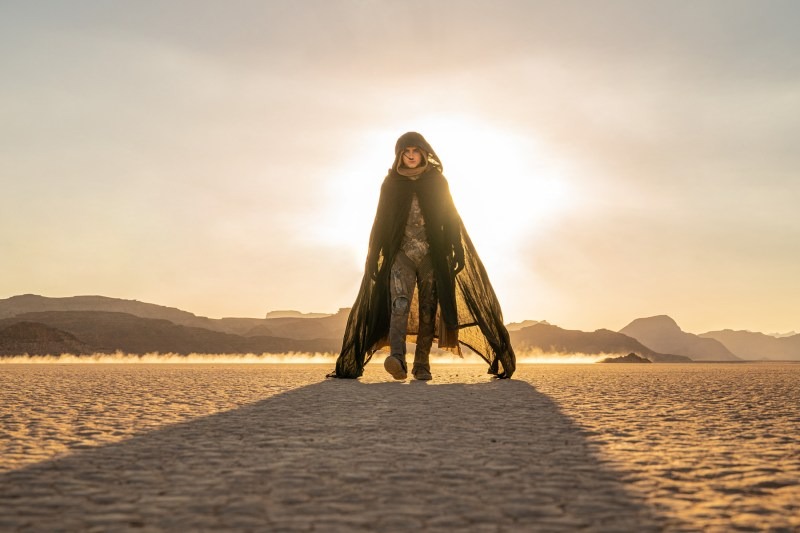
Denis Villeneuve makes good — very good — on the promise of his 2021 adaptation of Frank Herbert’s doorstopper of a sci-fi novel, picking up where he left off (roughly past the book’s halfway point) and digging into the themes of power, morality, revolution and what happens when a reluctant messiah embraces his destiny not wisely but too well. You get a tougher Timothée Chalamet, a truly psychotic Austin Butler, a moody Florence Pugh and twice as many sandworms. More importantly, you get the chance to see Villeneuve expand on the world he built off of Herbert’s prose and do justice to the scope and scale and sheer weirdness of a stoner-lit touchstone without, pun intended, sanding away its edges. It’s unapologetically geeky, and twice as unapologetically cinematic. Read the full review
16. ‘Hard Truths’

Mike Leigh returns to the modest, immeasurably moving character-driven dramas he made his name with back when he was doing Play for Today for the BBC — and gives us one of his single most memorable protagonists in the form of Pansy (Secrets & Lies‘ Marianne Jean-Baptiste), a woman who can find the storm cloud behind every silver lining. She has a tendency to criticize everything from her neighbors’ parenting skills (“What does a baby need a pocket for? Is it carrying a knife?!”) to the eating habits of her husband (David Webber) and hulking grown son (Tuwaine Barrett). When she’s not in attack mode and ripping into her family and friends, however, Pansy tends to become paralyzed with fear of the world around her, and it’s in the disparity between these two modes that Leigh and his lead actor slowly map out the inner world of a broken spirit. It’s not an overstatement to say that Baptiste delivers the performance of her career, much less the one that left us most gutted at the fest; she’s equaled by Michele Austin as Pansy’s sister, the one person who can offer solace and share in what sounds like a generational trauma suffered by both of them.
15. ‘Perfect Days’
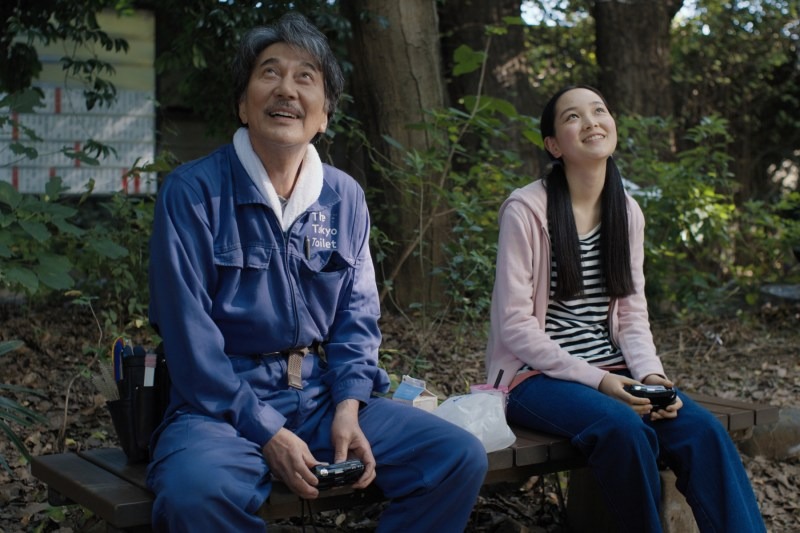
Legendary Japanese actor Kōji Yakusho gives a career-best performance as Hirayama, a middle-aged man who cleans public toilets for a living. He’s the kind of invisible civil servant who goes about their business in big cities throughout the world with both professionalism and anonymity, yet Yakusho and filmmaker Wim Wenders gives us an extended peek into this everyman’s inner life — and the result is a gentle, affectionate portrait of someone who has truly embraced a carpe diem mentality. For so much of Perfect Days‘ running time, the star doesn’t seem to be “acting.” He laughs, he momentarily tears up, he plays a beer-buzzed game of tag. And then Yakusho hits you with the sucker punch, courtesy of a close-up that leaves you reeling. Read the full review
14. ‘Robot Dreams’
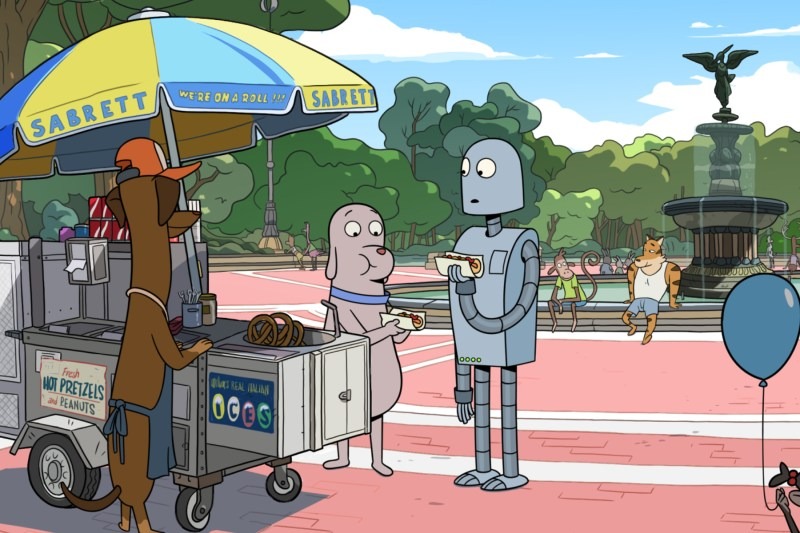
Do androids dream of electric sheep? A better question: What if their R.E.M. cycles were filled with the same thoughts of love and loneliness and hopes and fears as the rest of us? Based on Sarah Varon’s 2007 graphic novel, Pablo Berger’s animated buddy dramedy treats that idea as a given, pairing an anthropomorphic dog and his some-assembly-required robot best friend as they tool around a cartoon New York City. Then an incident causes these two inseparable pals to be separated, time passes, and the world keeps turning. The question is not what happens to Robot and Dog in the interim before the last day of one summer and the start of another, nor what dreams may come before then — though the various flights of slumbering fancy that the movie does show run an impressive gamut from Grimm fairy-tale nightmares to Busby Berkeley extravaganzas. It’s what will occur when these two buddies encounter each other again. A hint: Have several boxes of tissue handy. And know that you will never, ever hear Earth, Wind & Fire’s “September” the same way again. Read the full review
13. ‘Janet Planet’

Pulitzer-winning playwright Annie Baker steps behind the camera and delivers the last word on mother-daughter relationships, crafting a dual character study of a hippie-ish New England mom (Julianne Nicholson) and her 11-year-old kid (newcomer Zoe Ziegler) as they spend a summer navigating a particularly fraught push-pull dynamic. Like her stage work, Baker’s directorial debut is filled with long silences, empty spaces and things left unsaid; it’s also a testament to the power of leaving things unresolved, as a preadolescent tries to make sense of an adult world that, frankly, seems as foreign to her grasping, seeking parent as it does to her. A beautiful minor masterpiece. Read the full review
12. ‘Challengers’
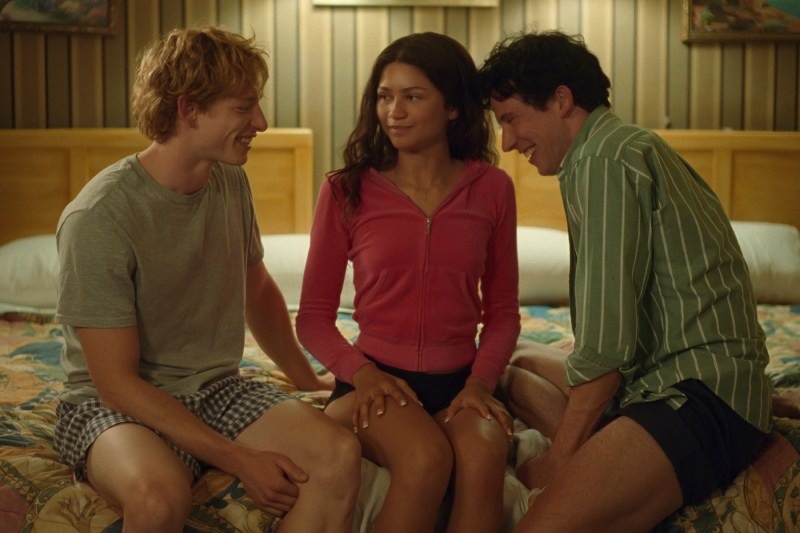
Luca Guadagnino’s doubles match of tennis drama and tortured love-triangle romance gives its holy trinity of young actors the perfect showcase, as well as adding a serious amount of heat to a story in which backhands serve as foreplay. It confirms Zendaya is not just a star but a force of nature when given the chance to call the shots, serving as both muse and master to Mike Faist’s fast-tracked champion and Josh O’Connor’s charming burnout. Plus the movie proves that nothing is more of a turn-on than a game well played, and gifts the world with the single most homoerotic churro in film history. Between this sports film and their collaboration on the equally daring William Burroughs adaptation, Guadagnino and screenwriter Justin Kuritzkes had a very good year, indeed. Read the full review.
11. ‘Totem’
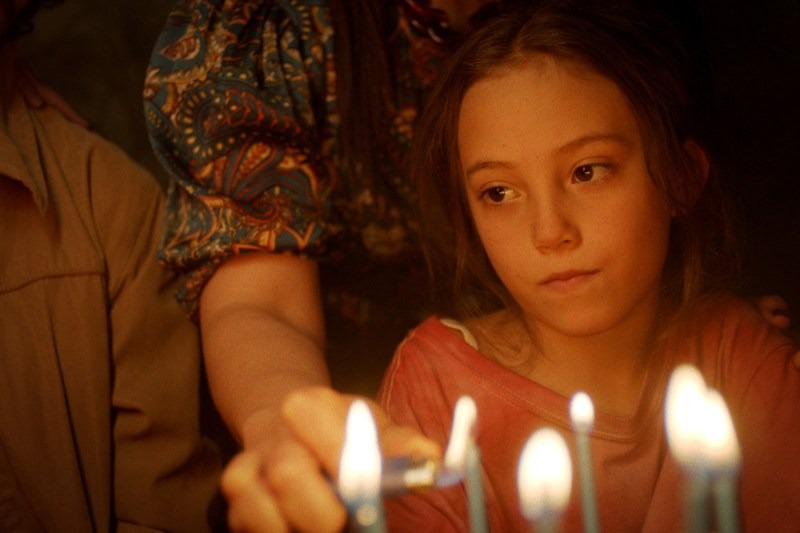
Coming-of-age movies so often run the gamut from cloyingly sentimental to cringeworthy — Mexican filmmaker Lila Avilés takes the road less traveled with this tale of a girl (Naíma Sentíes) saying goodbye to her terminally ill father, leaning into the way her environment and her family nurture her, and that makes all the difference. This is a movie about death that brims with life, a gentle drama that somehow never collapses under its own weight or lets sorrow fully take the wheel. It ends with a birthday party that you know will be the celebrant’s last, as seen through a child’s eyes yet handled with a sensitivity that suggests an artist with a genuinely humanistic sensibility. Read the full review
10. ‘La Chimera’

A near-mystical drama from Italian filmmaker Alice Rohrwacher (Happy as Lazzaro), about a British archeological scholar (Josh O’Connor — who, between this and Challengers, has now officially ascended to Scuzzy Sex Symbol status) occasionally moonlighting as a tomb raider. He’s got a sixth sense for finding graves filled with ancient — and lucrative — artifacts, which makes a return to his old stomping grounds a boon for his old partners in crime. It’s not greed but grief, however, that drives this thief, and the way that O’Connor turns his throwback, seedy ’70s anti-hero into a man of constant sorrow is revelatory. An absolutely glorious, gutting story about stealing from the past while still being cursed to never, ever bring it back. Read the full review.
9. ‘Do Not Expect Much From the End of the World’
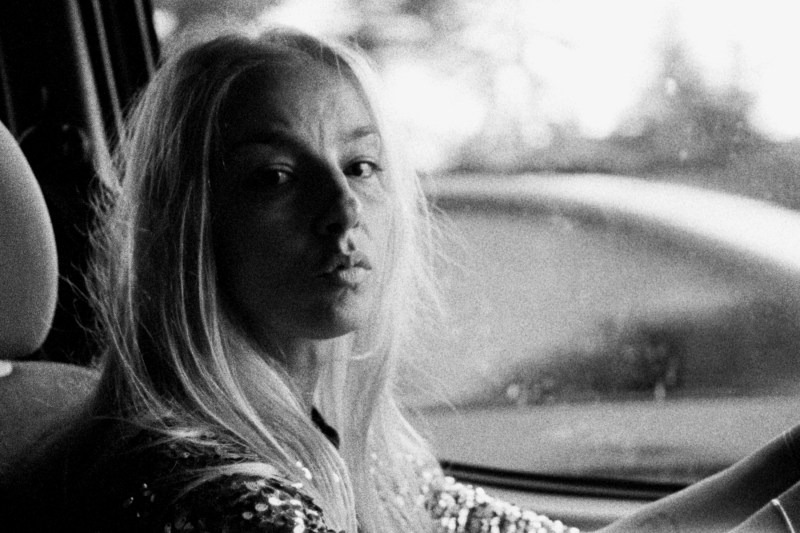
In which the end comes not with a bang, but with a TikTok post featuring a fake incel bragging about his prolific sex life. Romanian filmmaker Radu Jude’s biting satire captures our current the-center-cannot-hold moment better than just about any other film of the past few years; its title may be a mouthful, but the more accurate name Apocalypse Now was, regrettably, already spoken for. Following Angela (Ilinca Manolache), a Bucharest-based production assistant frantically driving from one meaningless task to the next, this chaotic comedy contrasts this gig-economy worker’s wage-slavery with life during the authoritarian Ceaușescu regime and comes to the conclusion that only the dates on the calendar have changed. Angela social-media rants via her alter ego — a toxic-male caricature known as Bobita — couldn’t be more crudely hilarious. The movie’s climax, in which we see a dead man’s family get gaslit and reality gets hijacked, couldn’t feel more unsettling. Read the full review
8. ‘The Substance’
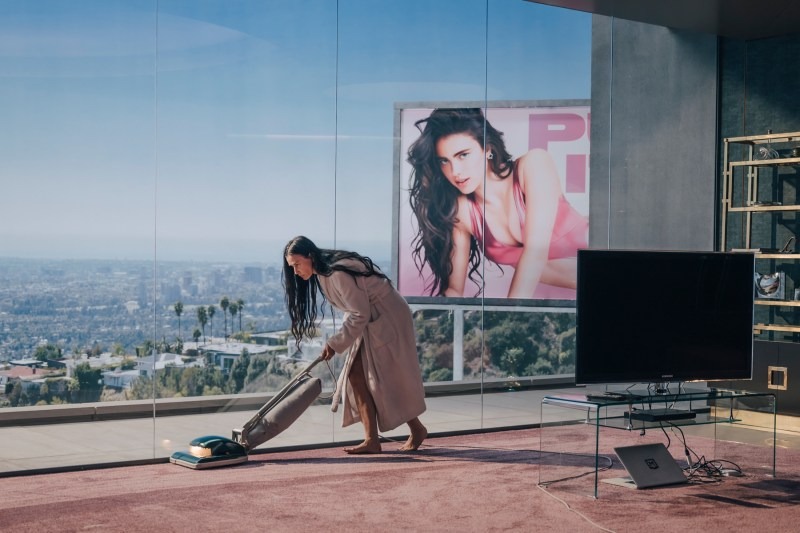
You’d assume that the latest provocation from French genre expert Coralie Fargeat (Revenge) would be smart, savvy, bold and bloody. Not even a foreknowledge of her past work could prepare you for the instant body-horror classic, which watches as a TV star (Demi Moore) deals with being pitilessly aged out of the industry. She then finds out that a secret subscription service would allow her to foster a younger version of herself, although the plan requires both her and her dewy twentysomething “twin” (played by Margaret Qualley) to abide by a strict set of rules. Let’s just say this this riff on The Picture of Dorian Gray goes ballistic in the best possible way, and gets very gory before the end credits roll. (You want a climactic bloodbath that puts The Shining‘s plasma-gushing elevator to shame? You got it!) The Substance won’t reset society’s fixation on youth or cure Hollywood’s hypocritical, hyper-sexist ills. It will, however, remind you that when you’re chasing your past by any means necessary, you are always your own worst enemy. Read the full review
7. ‘Dahomey’
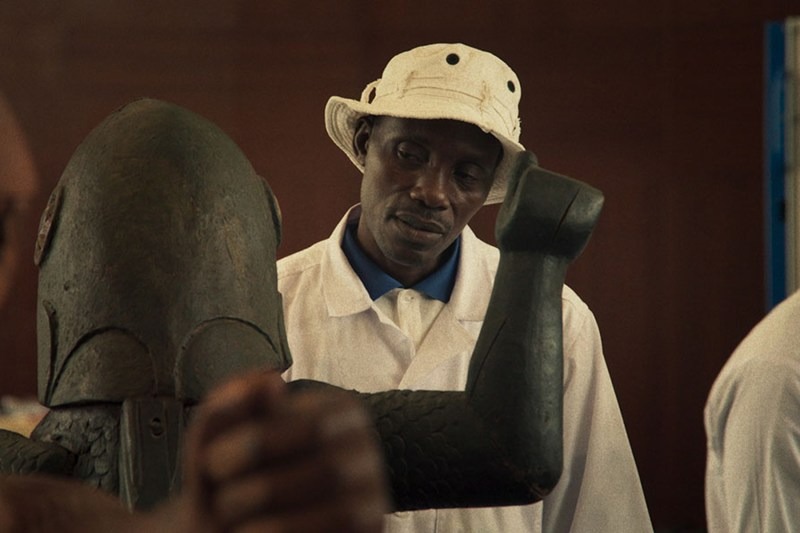
Mati Diop’s follow-up to 2019’s Atlantics follows the reclamation of treasures from the West African nation of Benin — formerly known as the Kingdom of Dahomey — stolen in the late 1800s by French occupiers. Once these prized possessions are returned to their rightful home, the reaction from contemporary citizens ranges from relief to rage over the fact that only 26 items out of the hundreds plundered had been handed back. Meanwhile, the objects themselves wonder aloud (!) what it means to be removed from their contextual origins. A thrilling, thoughtful, totally unique take on the legacy of colonialism, the toll of a history that involves the subjugation of others and the way in which cultural artifacts play into a country’s identity. Read the full review
6. ‘All We Imagine as Light’
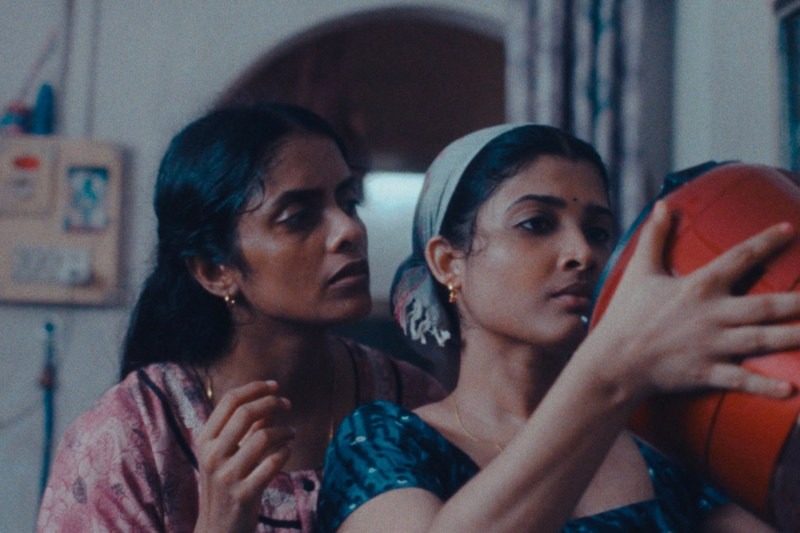
Part ode to female friendships and part city symphony — Mumbai after hours has rarely looked so enticing onscreen — Payal Kapadia’s tale of three women struggling to reconcile respective romantic issues, dislocation and feelings of loneliness was the first Indian film to play in competition at Cannes in 30 years. But it would be a landmark work even if it had not broken that particular M.I.A. streak, with Kapadia building off the docu-hybrid style of her previous movie A Night of Knowing Nothing (2021) and imbuing her portrait of life in the big city with a genuine sense of lived-in lyricism. She’s happy to let each of the narratives intersect and gently collide off each other. And then, in one fell swoop, All We Imagine as Light drops a sideways bit of magical realism into the mix that’s as lyrical and evocative as the movie’s title, and in something like a neon-spiced coda, the movie reveals what’s it about: Not three separate stories, but one singular ode to intergenerational sisterhood. Read the full review
5. ‘The Brutalist’
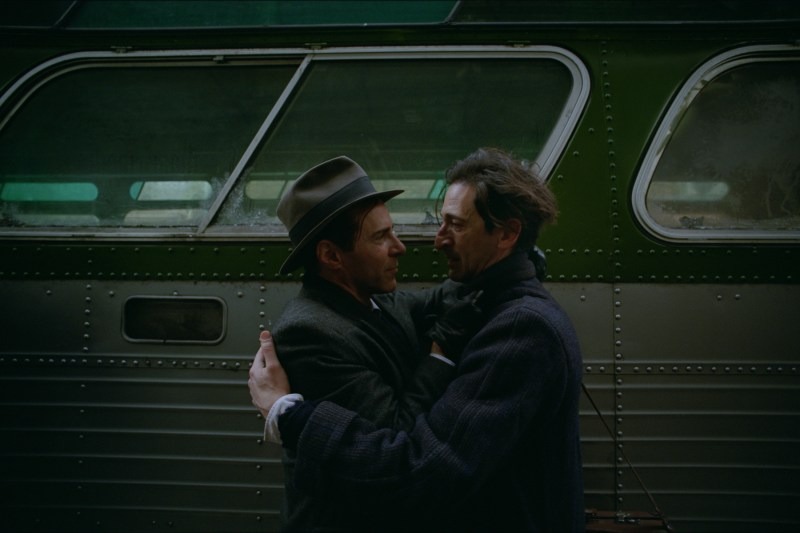
Actor-turned-director Brady Corbet goes for broke in this wildly ambitious, wonderfully realized story of a Hungarian architect named Lázsló Tóth (Adrien Brody, brilliant) who flees to the U.S. near the end of WWII and is conscripted by a rich industrialist (Guy Pearce) to build a community center in Doylestown, Pennsylvania. He soon finds himself choking to death on the American Dream. The vibe is vintage 1970s epic character-study, complete with a marathon running time, an intermission and a 70mm print struck for future bigger-than-life screenings; what Corbet and his cast (including Felicity Jones, Joe Alwyn, Isaach de Bankolé and Alessandro Nivola) achieve within the massive scope and scale of this modern masterpiece, however, is singular. Read the full review
4. ‘Anora’

Just your typical boy-meets-girl romp, if the boy was a Russian oligarch’s filthy rich son and the girl was an exotic dancer/escort from Brooklyn who accepts his impromptu marriage proposal. The latest from Sean Baker (Tangerine, The Florida Project, Red Rocket) plays like a mash-up of Pretty Woman and Uncut Gems, with Mikey Madison’s working-class sex worker getting swept off her feet by Mark Edelshteyn hedonistic rich kid and settling in to a life of mansions and Vegas getaways. Then a trio of guys who work for the young man’s parents show up to inform them the party is over, and the film slams its foot down on the gas pedal. As with all of Baker’s movies, there’s an attention to class structures and life on the fringes that adds a serrated edge to the sharp comedy here. And the Better Things actor couldn’t ask for a better showcase; this truly gives Madison her star-is-born moment. (Ditto Yura Borisov, whose dim-witted thug gives the movie its stealth heartbeat.) Bonus: an absolutely perfect final shot. Read the full review
3. ‘A Real Pain’

Actor-writer-director Jesse Eisenberg‘s buddy dramedy about two cousins — one a gregarious and boundary-ignoring hippie type (Kieran Culkin) and the other an uptight neurotic (Eisenberg), both of whom travel to Poland to pay tribute to their late grandmother — confirms that the Social Network star has a definite sensibility behind the camera. It also demonstrates his deep understanding about where the intersection between hilarious and poignant lies, as well as being the solid straight man for his let-it-all-hang-out costar. And the way that Culkin turns this hedonistic, overly friendly and emotionally naked screw-up into the film’s id, and simultaneously makes you wanna hit him and hang with him, is something to behold — it’s a perfect melding of performer and role. Add in an ability to delve into generational trauma without being Pollyanna-ish or maudlin, and the sort of focus on shaggy, difficult characters you associate with ’70s American cinema, and you have a real winner. Read the full review
2. ‘Good One’
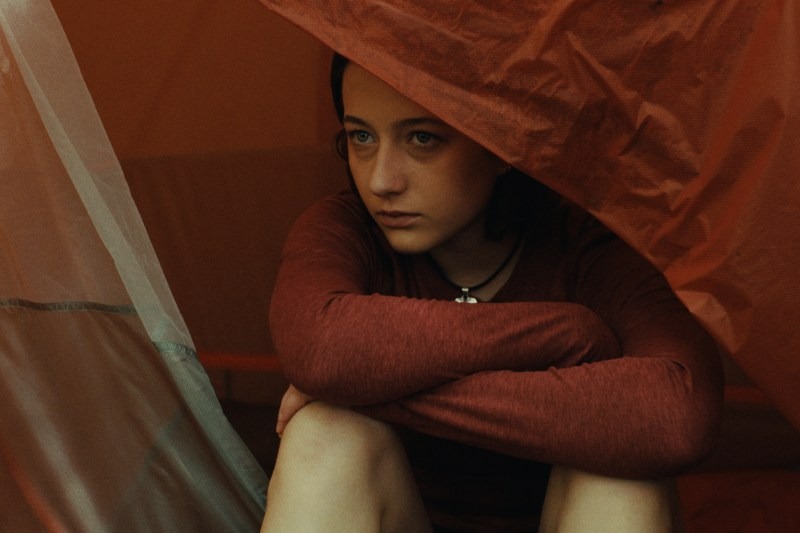
A 17-year-old named Sam (Lily Collias) finds herself navigating a weekend hiking trip with her dad (James Le Gros) and his longtime best friend (Danny McCarthy). The two middle-aged men keep rehashing their failures and regrets, as well as poking each other’s pressure points. What distinguishes this from your usual Brooklyn Sad-Dadbait, however, is the way that writer-director India Donaldson’s debut filters all of it through Sam’s perspective — so much of the film’s quietly devastating power relies in Collias’ silent reaction shots and the subtle changes of expression that both hint at and hide seismic shifts underneath the surface. It’s the type of that revelatory performance that can make or break a film so reliant on suggestion and things left unsaid. Read the full review
1. ‘His Three Daughters’

Writer-director Azazel Jacobs’ portrait of sniping siblings caring for a patriarch who’s preparing to pass away is as close to a masterpiece as the Momma’s Man filmmaker has ever come. Not that these three sisters — the Chekhov allusion in the title isn’t a coincidence — have ever been particularly close: Katie (Carrie Coon) is a passive-aggressive control freak; Rachel (Natasha Lyonne) is a checked-out stoner who’s numbed by taking care of their father over the last years of his life; and Christina (Elizabeth Olsen) just wants everyone to get along, pretty please. They’re essentially trapped together, these three wildly different souls with their own fears and anxieties and axes to grind, in an LES apartment with too much personal history. Everyone has their excuses, their coping mechanisms, and their reasons for not making nice. Each of them is starting to mourn the loss of their dad in their own respective way. Each of them is collectively ready to blow a gasket.
Jacobs has always been a great director of actors, as well as the unsung auteur of 21st-century Amerindie cinema — and he’s given his cast a hell of a stage on which to rage here, knowing that they’ll carry this tale of slouching toward forgiveness and letting go of the past. The way the actors play the dysfunctional dynamic of this unholy trinity, however, is nothing short of miraculous; Lyonne, especially, does career-best work here. There’s not a single false note to any of it. Tolstoy said every family was dysfunctional in its own way. His Three Daughters reminds you that ties that bind — and occasionally strangle, and often heal you — are also all too familiar and universal. Read the full review
From Rolling Stone US.







